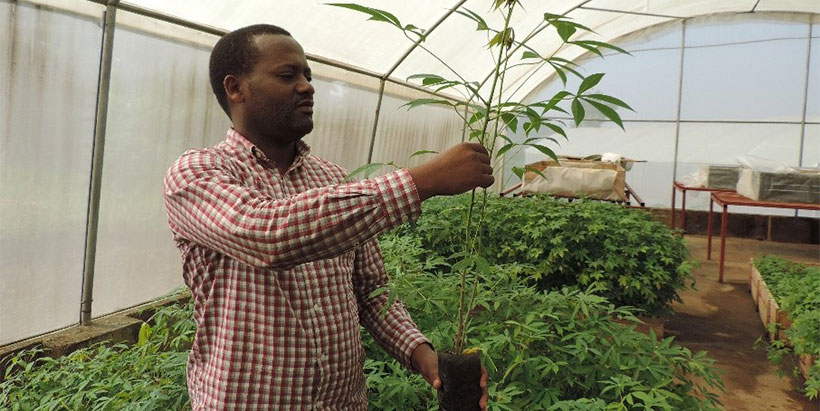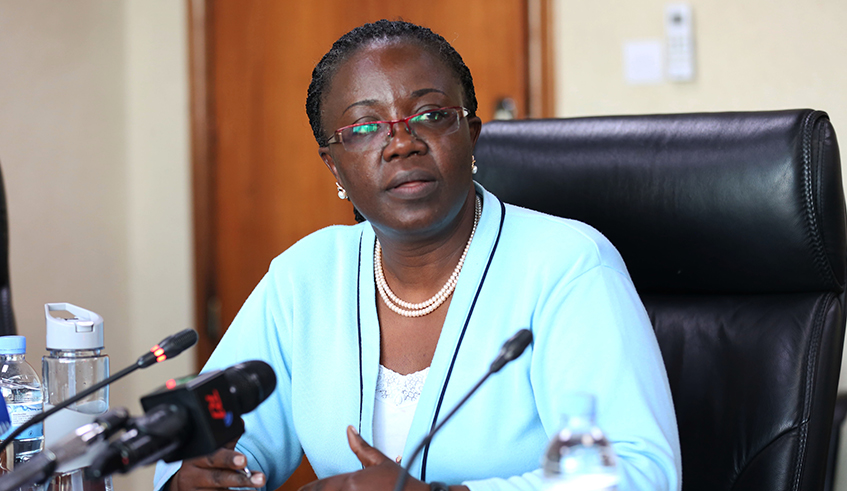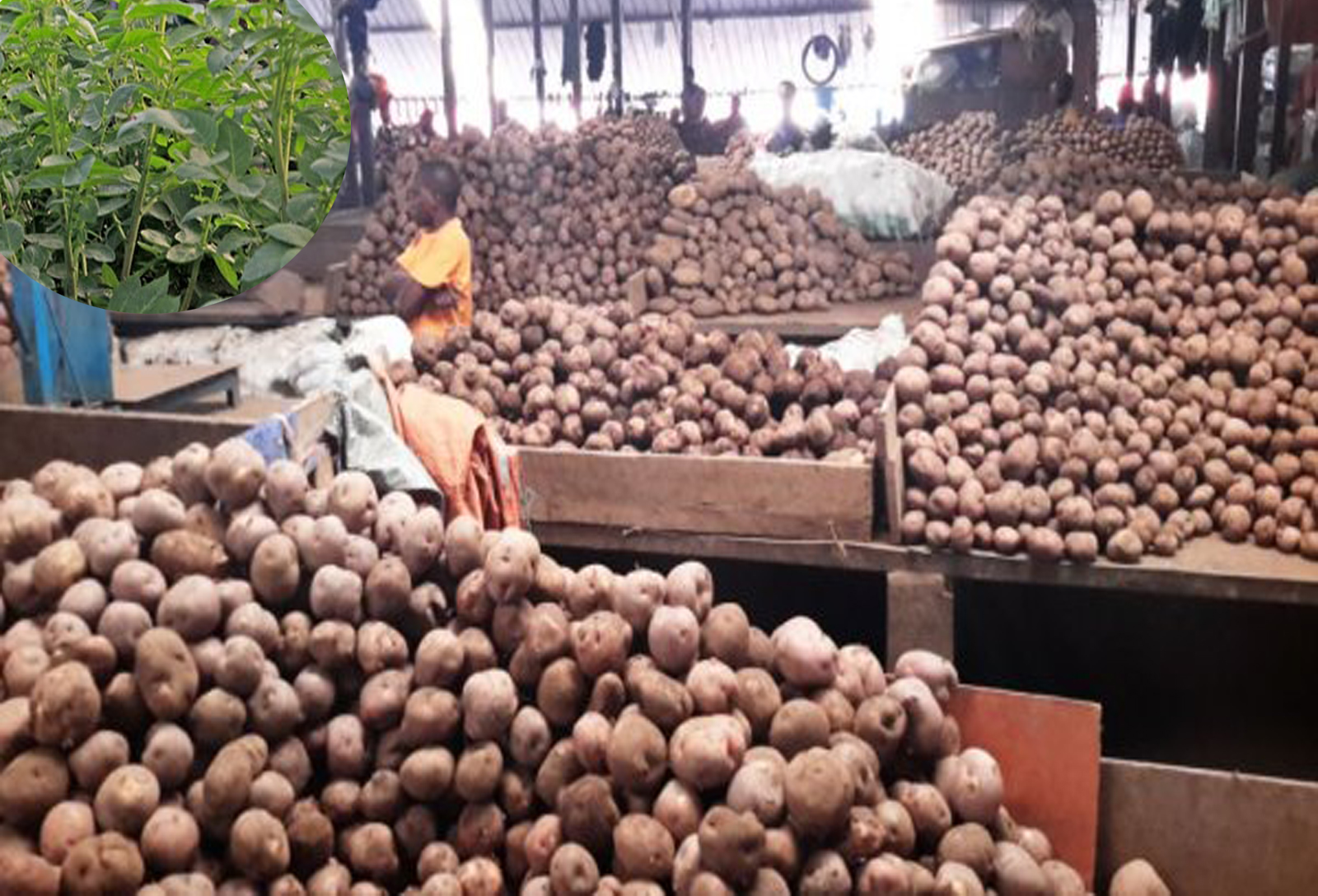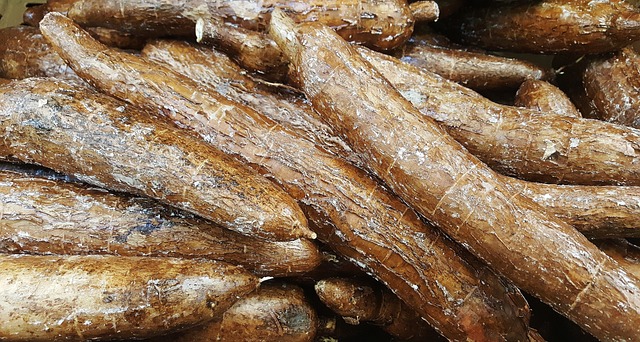The Rwanda Agriculture and Animal Resources Development Board is waiting for legislation so it can employ biotechnology in seed multiplication.
Currently, Rwanda does not have a policy to guide the cultivation of genetically modified crops.

“We have conducted enough studies on Irish potato and cassava but we can’t go beyond trials because there is no law to regulate the use of biotechnology,” Rwanda Agriculture and Animal Resources Development Board official Athanase Nduwumuremyi told Alliance for Science in an interview.
Nduwumuremyi, who is the coordinator of the Roots and Tubers Program at RAB, said they have biologically engineered Irish potato which can resist pests and diseases and is also suitable for the climatic conditions in Rwanda.
Draft Biosafety Bill was submitted to the Rwanda Law Reform Commission for review.
He added that the scientists at RAB, which is under the Ministry of Agriculture and Animal Resources, have also carried out studies on pest-resistant cassava as they wait for regulations.
“We have done all the in-house trials. We’re only waiting for the law to allow us to conduct field trials which we believe will be the final stage of allowing genetically modified seeds to be used by farmers in Rwanda” he added.

Rwanda’s environment minister Jeanne d’Arc Mujawamariya said there is a draft Biosafety Bill that will regulate the use of bio-engineered seeds.
The minister did not reveal how far the review of the draft Biosafety Bill has gone but reports indicate that it was submitted to the Rwanda Law Reform Commission for review.
Irish potato production hampered by potato bacterial wilt and scientists try to undermine its effect by advising farmers to grow a certain variety depending on the season.
“The draft is under scrutiny by several responsible parties in the drafting of laws,” the minister told Alliance for Science in an exclusive interview in May 2023.
“Due to its nature, the draft needs exhaustive review and consultation with all concerned parties. We want to come out with a faultless law and we’re in the final stages.”
She expressed concerns about projects that are lagging because of the absence of the law and asked the concerned parties to be patient.
The total area under Irish potato production increased from 130,000 hectares in 2013 to 200,000 hectares in 2019.
Alliance for Science talked to leaders of farmers’ cooperatives growing Irish potatoes and cassava and none had any idea about improved seeds but said their crops are attacked by different pests.

The Irish potato is one of the most important crops in Rwanda and is one of the government’s six priority crops falling under the Crop Intensification Program (CIP).
The total area under Irish potato production increased from 130,000 hectares in 2013 to 200,000 hectares in 2019 while the yield increased from 2.4 million tons to six million tons in the same period, according to Agriterra Limited.
Over 700,000 Rwandan family farms cultivate cassava, producing nearly three million tons.
However, Irish potato production in Rwanda is still hampered by potato bacterial wilt and scientists try to undermine its effect by advising farmers to grow a certain variety depending on the season.
There are six varieties of Irish potato and two planting seasons in Rwanda which farmers take advantage of to dodge the disease although together with the scientists they say, that does not help much.

Cassava is also Rwanda’s staple crop. Over 700,000 Rwandan family farms cultivate cassava, producing nearly three million tons, according to International Fund for Agricultural Development.
The leading cassava diseases in Rwanda are cassava mosaic and brown streak which scientists at RAB say can be undermined by engineering a disease-resistant cassava variety.
According to the data published by the National Institute of Statistics of Rwanda in 2020, cultivation of cassava had increased by 11 percent, more than maize and banana which had increased by seven and eight percent, respectively.
